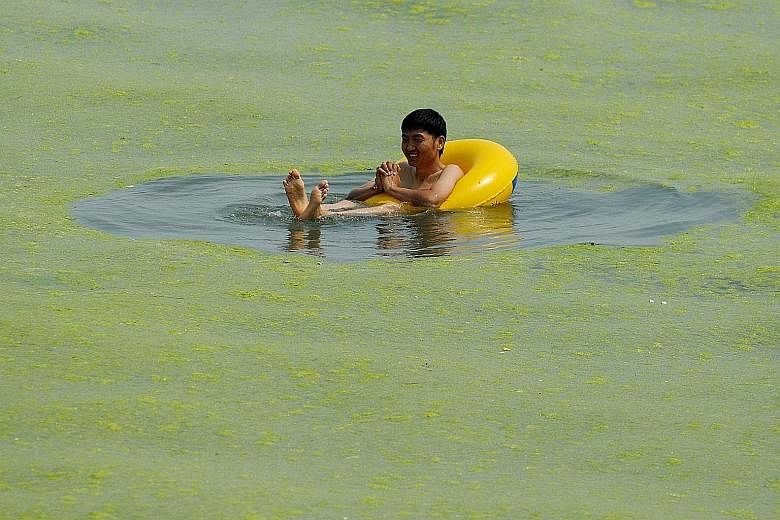PARIS • The unprecedented degradation of the earth's natural resources, coupled with climate change, could reverse major gains in human health over the past 150 years, warns a sweeping scientific review published yesterday.
"We have been mortgaging the health of future generations to realise economic and development gains in the present," said the report, written by 15 leading academics and published in the peer-reviewed medical journal The Lancet.
"By unsustainably exploiting nature's resources, human civilisation has flourished but now risks substantial health effects from the degradation of nature's life support systems in the future."
Climate change, ocean acidification, depleted water sources, polluted land, over-fishing, biodiversity loss - all unintended by-products of humanity's drive to develop and prosper - "pose serious challenges to the global health gains of the past several decades", especially in poorer countries, the 60-page report said.
The likely impacts on global health of climate change, ranging from expanded disease vectors to malnourishment, have been examined by the UN's panel of top climate scientists.
But the new report, entitled Safeguarding Human Health In The Anthropocene Epoch, takes an even broader view.
The "Anthropocene" is the name given by many scientists to the period - starting with mass industrialisation - in which human activity is arguably reshaping the planet's biochemical make-up.
"This is the first time that the global health community has come out in a concerted way to report that we are in real danger of undermining the core ecological systems that support human health," said Dr Samuel Myers, a scientist at Harvard University and one the report's authors.
A companion study on the worldwide decline of bees and other pollinators, led by Dr Myers and also published in The Lancet, illustrates one way this might happen.
The dramatic decline of bees has already compromised the quantity and quality of many nutrient-rich crops that depend on the transfer of pollen to bear fruit.
Pollinators play a key role in 35 per cent of global food production and are directly responsible for up to 40 per cent of the world's supply of micronutrients such a vitamin A and folate, both essential for children and pregnant women.
The complete wipe-out of pollinating creatures, the study said, would push a quarter of a billion people into the red zone of vitamin A or folate deficiency, and cause an increase in heart disease, stroke and some cancers, leading to 1.4 million additional deaths each year. A 50 per cent loss of pollination would result in about half that impact, the researchers found.
Scientist are still debating exactly why pollinators are dying off, but there is no disagreement that all the possible causes - pollution, insecticides, land loss - are related to human activity.
A second companion study examines for the first time the impact of decreased zinc levels in staple crops such as wheat, rice, barley and soya caused by higher levels of carbon dioxide in the atmosphere.
Already, nearly one-fifth of the world's population is at risk of zinc deficiency, which can cause premature births, reduce growth in children and compromise immune functions. By 2050, projected carbon dioxide emissions could place an additional 150 million people at risk, said the study.
"Our civilisations may seem strong and resilient, but history tells us that our societies are fragile and vulnerable," Dr Richard Horton, editor-in-chief of The Lancet and a co-author of the main report, said in a statement.
AGENCE FRANCE-PRESSE

